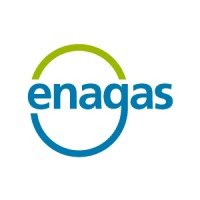FuelPositive receives government support and funding for Manitoba-based project

FuelPositive Corporation is pleased to announce it has been approved to receive CA$300,000 through the Canadian Agricultural Partnership towards building the first of its three at-scale demonstration systems.
The onsite, containerized green ammonia production systems will not only eliminate carbon emissions from the production of ammonia, but the onsite model also provides farmers with control over supply and timing and stabilizes the price of nitrogen fertilizer in their operations. FuelPositive has partnered with Tracy and Curtis Hiebert to pilot up to all three versions of the FuelPositive demonstration systems on their 11,000-acre crop farm, southwest of Winnipeg, Manitoba, Canada.
The system will produce green anhydrous ammonia from water and air, using sustainable electricity from Manitoba’s low-cost, renewable electrical grid. The green ammonia will be used as fertilizer on the farm in the spring of 2023. Ultimately, it will also be used as a clean fossil fuel replacement for farm machinery, heating and grain drying.
“Investments in clean technology are helping producers stay competitive and become more resilient to environmental stressors and climate change,” said the Honourable Marie-Claude Bibeau, federal Minister of Agriculture and Agri-Food. “This investment in FuelPositive builds on innovations already being adopted by Manitoba’s producers to reduce their carbon footprint while sustainably feeding the world.”
“Our government strives to provide greater cost certainty and to reduce risk for agricultural producers, and if proven effective, Fuel Positive’s technology for generating anhydrous ammonia at farms would assist in meeting these objectives,” said Manitoba Agriculture Minister Derek Johnson. “The production of hydrogen fuel for farm equipment would also help to reduce greenhouse-gas emissions. We are pleased to invest in the testing of this technology in Manitoba’s winter conditions.”
“We are absolutely thrilled and encouraged to be receiving this support from the Governments of Canada and Manitoba for our disruptive technology, our onsite business model, and the pilot project to demonstrate our first on-farm system,” said Ian Clifford, FuelPositive CEO and Board Chair. “We chose to start off in Manitoba because of its clean electrical grid, the large crop farms there, and the need for an affordable and stable carbon-free fertilizer supply for its farmers and for food security. It’s the ideal environment for us.”
Once on the Hiebert’s farm, the first demonstration system will be heavily monitored for a full year, which will provide results under dramatically different operational and weather conditions – from the frigid temperatures of the winter, through the potentially heavy floods of spring, to the blistering heat of the summer. Those ongoing results will shape future systems being built concurrent with the initial demonstration system.
In a letter to FuelPositive supporting the project, Manitoba Agriculture, who delivers Canadian Agricultural Partnership funding in that province, summarized the benefits of the FuelPositive system as:
- Eliminating greenhouse gases from the production of ammonia for fertilizer and transport of ammonia from the point of manufacturing to farms
- Increased certainty of nitrogen supply and prices for farmers, thus reducing external pressures (e.g., geopolitical risk, supply shortages and price risk)
- Clean fuels for farm machinery, heating and grain drying
- Positive momentum for innovation at the farm level to put more control in the hands of farmers to reduce their carbon footprint
- Increased competitiveness for farmers to position products as more sustainable in the marketplace, with the potential for premiums
- Increased public trust in agriculture from a carbon footprint perspective.
FuelPositive’s onsite, containerized green ammonia production system offers Canadian-made, clean technology to decarbonize farms in Canada and around the world. The demonstration system will be fully validated and farm-ready before being moved to the Hiebert’s farm.
The demonstration system will be housed in three 20-foot containers and will require a bulk ammonia storage tank, as well as a rigorous safety system of barriers, fencing, lighting and surveillance cameras. Training will be delivered for safe handling of ammonia, system operation, as well as system maintenance, all following the standard code of practice for anhydrous ammonia as published by Fertilizer Canada. Municipal approval for the on-farm system has already been secured.
